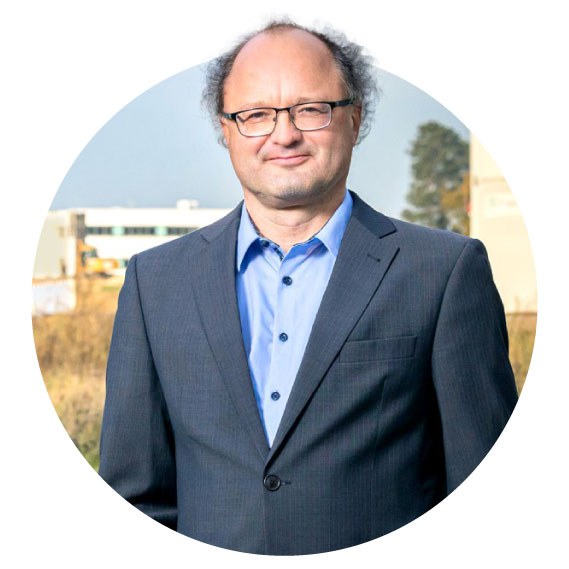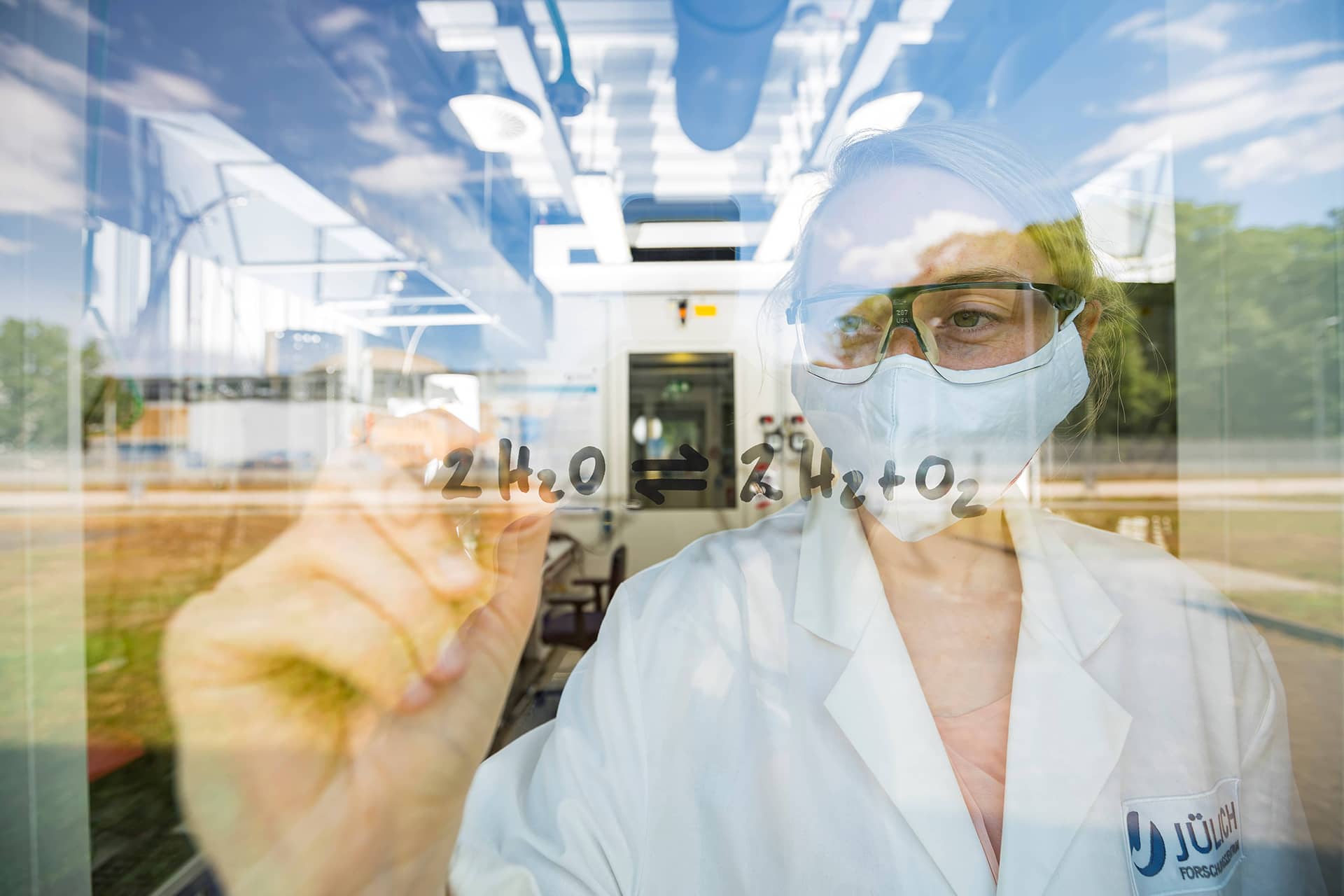Challenge Energy Transition
Elements of the future
Helmholtz Cluster Hydrogen is at the forefront of the energy transition, aiming to establish hydrogen as a pivotal element in our energy landscape. Their researchers are diligently working on innovative technologies to make this vision a reality.
An element that serves as a promising alternative fuel for various transportation modes like cars, trains, ships, and airplanes. Additionally, it proves to be a valuable raw material for industries like chemicals and steel production. Not to mention its role as a temporary storage solution for renewable energies, ensuring a continuous electricity supply even during periods when solar systems are inactive or wind turbines face calm weather conditions. In essence, we are speaking about none other than hydrogen.
The process of generating "green" hydrogen through electrolysis
This substance with the chemical formula H2 offers a gleam of hope for the energy supply of tomorrow. Through the process of electrolysis, water is divided into its two constituents, oxygen and hydrogen, using energy derived from renewable sources like water, wind, and solar power. This yields "green" hydrogen – a sustainable energy source that leaves no harmful greenhouse gas emissions in its wake, making it an environmentally friendly solution.

Challenges in hydrogen storage and transportation
But how do we get the gas to where it needs to deliver energy? To store it efficiently and transport it safely, it has traditionally required compression at high pressure or cooling below minus 250 degrees Celsius to turn it into liquid form. However, scientists from the Helmholtz cluster for sustainable and infrastructure-compatible hydrogen economy at Forschungszentrum Jülich, known as HC-H2, propose a potentially simpler approach. They are currently working on developing technologies that could revolutionize the process.
Their ultimate goal is to demonstrate storage methods that transform hydrogen into an everyday energy source or fuel. Peter Wasserscheid explains, "If we succeed in integrating hydrogen into existing gas lines, and particularly in liquid form for conventional tankers and storage facilities, we could significantly expedite the transition to renewable energy.

"It has always held great significance for me that my research, should it prove successful, carries a genuine social value."
Prof. Peter Wasserscheid
speaker HC H2
The chemist not only serves as the spokesperson for HC-H2 but has also played a pivotal role in the research of an infrastructure-compatible method known as LOHC technology. This groundbreaking process involves binding hydrogen to a flame-retardant organic carrier liquid in a chemical reactor, resulting in the creation of Liquid Organic Hydrogen Carrier (LOHC), which enables easy storage and transportation. When utilized for electricity generation or as fuel for hydrogen vehicles, the hydrogen can be easily released by another reactor.
Prof. Peter Wasserscheid: A dedicated researcher striving to make a difference
Pilot initiative taking place at Erkelenz's Hermann-Josef-Hospital
Recently, a momentous industrial-scale demonstration project has been initiated under the coordination of HC-H2 at Hermann-Josef-Krankenhaus Erkelenz. This project ingeniously links two innovative hydrogen technologies to efficiently supply the clinic with energy. Alongside the installation of a fuel cell system, developed at the Forschungszentrum Jülich and implemented by Robert Bosch GmbH, a cutting-edge LOHC system from Hydrogenious LOHC NRW GmbH is set to be added in the next expansion phase.
This arrangement creates a remarkable synergy, as the LOHC system supplies the fuel cell with its essential hydrogen fuel. Interestingly, the energy needed to extract hydrogen from its carrier liquid is derived from the heat generated by the fuel cell.
According to Wasserscheid, this project marks a significant milestone, as it showcases, on a large scale, a technology with the potential to provide climate-friendly energy to substantial building complexes worldwide. It represents yet another step towards the sustainable transformation of our energy systems, achieved in partnership with forward-thinking collaborators.
Image: Forschungszentrum Jülich/ Sascha Kreklau
Editorial: SeitenPlan
Explore the realm of innovation and knowledge transfer at Forschungszentrum Jülich
Embark on a journey to witness the pioneering efforts of visionary scientists from Forschungszentrum Jülich, as they actively contribute to shaping societal transformation through groundbreaking innovation and knowledge transfer.








